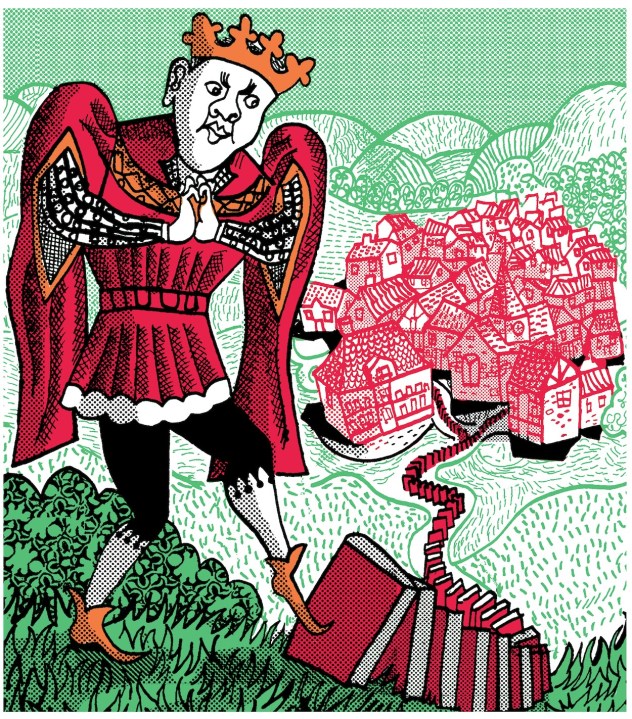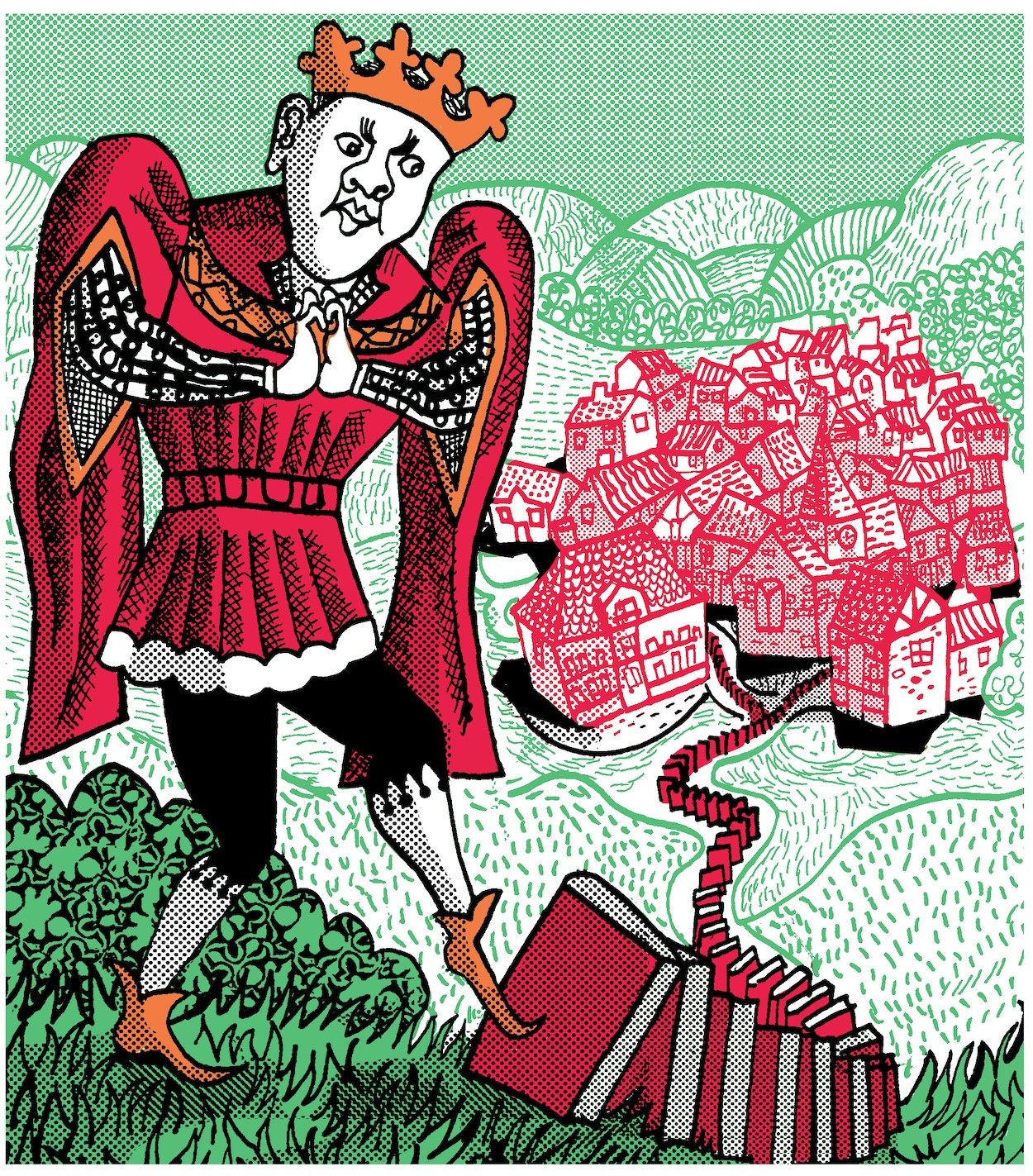My wife put it in her usual succinct way: ‘Why do you want to write a book about such a sleazeball?’ I couldn’t really say. The late Richard Booth, second-hand bookseller and former self-crowned king of Hay-on-Wye, was not instantly lovable. Some found him the essence of unlovability. He was scruffy, disorganised, egocentric, impetuous, hopeless with money and capricious. At times he was rude, promiscuous, bad-tempered, small-minded, boring, bombastic, unscrupulous and unaware of the upset he could cause.
Yet most of his staff – those who survived the whim of iron – loved him for his good heart, his childlike enthusiasm, his humour, ingenuousness, irreverence, shyness and kindness. He created the book mecca that is Hay, which straddles the Powys–Hereford border and remains home to more than 40 booksellers.
These days the town is better known for its literary festival. If you asked any of its 200,000 visitors every May if they had heard of Booth, the chances are they wouldn’t have. But it was Booth – eccentricity personified – who left Oxford with no degree and no ambition other than to silence his parents’ conventional ambitions for him, who opened a shop in 1962. This despite the closure of the local railway line and warnings that ‘no one reads books in Hay’. Within 15 years he was running the world’s largest second-hand bookshop.
That hadn’t been the intention. This was no man-on-a-mission to do a ‘Fitzcarraldo for farming folk’, but in time he was infected with a bug for buying and selling books. He would get up at 4 a.m. to trawl homes, libraries and miners’ colleges across the country – ‘there are no decent books in a house with an illuminated doorbell’, he would tell his staff – and get them sent back to Hay, where storage was cheap.
He bought Hay Castle and then its disused cinema, installing miles of shelving and luring readers from miles around with the promise of serendipity and cheap books.
It was a Death Race 2000 approach, but it worked. Soon Booth owned a string of shops and attracted many more booksellers. There were bargains big and small on offer, and Booth travelled further and further afield – to Australia, the US and Canada – to keep the stock fresh.
An influencer before his time, his genius for publicity brought in a string of celebrities (April Ashley, Marianne Faithfull and others) and prompted him to declare independence for Hay, ludicrously claiming the town (pop. 1,400) was ‘all for it’. Some didn’t approve of the ‘sophisticated’ set he brought with him, but he brought prosperity and made Hay world-famous.
He was more impresario than businessman. He would raid his own till at 5.30 p.m. and buy drinks for everyone in the pub (or several pubs), chatting for hours with farmers about traditional farming methods and the wickedness of supermarkets, pesticides and bureaucrats, particularly the Welsh Development Agency.
‘The only way to revive the rural economy is to bring back animals and peasants’
He would ship thousands of books back from the States, often forgetting to pay and/or oblivious to what he had bought. Business managers would come and go, unable to restrain his spending, and bankruptcy was a constant threat. Yet, like a despot in a remote republic, he saw himself as the father of the nation, the man who would make the local economy sustainable. To some, it was delusional, but it was deeply sincere and in many respects prophetic. For him, his interests and the locals’ were indivisible.
So when first moneybags bookdealer Leon Morelli and then, in 1988, the new literary festival came to town, his centrality was at stake. He loathed the festival and all who sailed in it. ‘New books are for the ego, second-hand books are for the intellect,’ he would say, organising men with chainsaws to make poetry readings inaudible. It took him more than ten years to overcome his festival phobia, during which time his third wife, Hope, heroically continued her efforts to control his overspending and stop his staff ripping him off. (With patrician beneficence, it hadn’t really bothered him until then.)
He despised socialism but in 1999 stood as a candidate for the Socialist Labour party in the European Parliament elections, once more bashing Welsh local government and proclaiming: ‘The only way to revive the rural economy is to bring back animals and peasants.’ He continued to promote ‘book towns’ (of which Hay was the first) across the world and watched as Hay continued to thrive, his influence now tamed somewhat.
But the passion still burned. On a buying trip in Miami, he got into deep conversation with a couple of barely dressed sex workers hanging around outside a nightclub. Eventually they parted. He had been telling them about how it was time to close down the Welsh Development Agency. ‘I thought they might be interested,’ he told his colleague.
Richard Booth is the most divisive person I have ever come across. When I spoke recently at a gathering in Hay, even the price he paid in 1966 to buy the venue – the castle – was hotly disputed. The only agreement about him is that he put Hay on the map. He achieved a huge amount. Was he ‘nice’? Not conventionally so, but then he wasn’t conventionally anything. ‘Sleazeball’, though, is taking it too far.
James Hanning is the author of The Bookseller of Hay: The Life and Times of Richard Booth.








Comments